One reason I love Sunday mornings when I am at home in New York City is to wake up, open the door of my apartment and find a copy of the print edition of The New York Times waiting for me on top of my small Welcome mat!
Call it life’s simple retro pleasures. This Sunday morning was no exception.
Here is what today’s New York Times wrapped its Sunday print edition into, a glossy, heavier stock paper ad for TUMI, the luggage-making firm, advertising opening of its new store on Madison Ave.
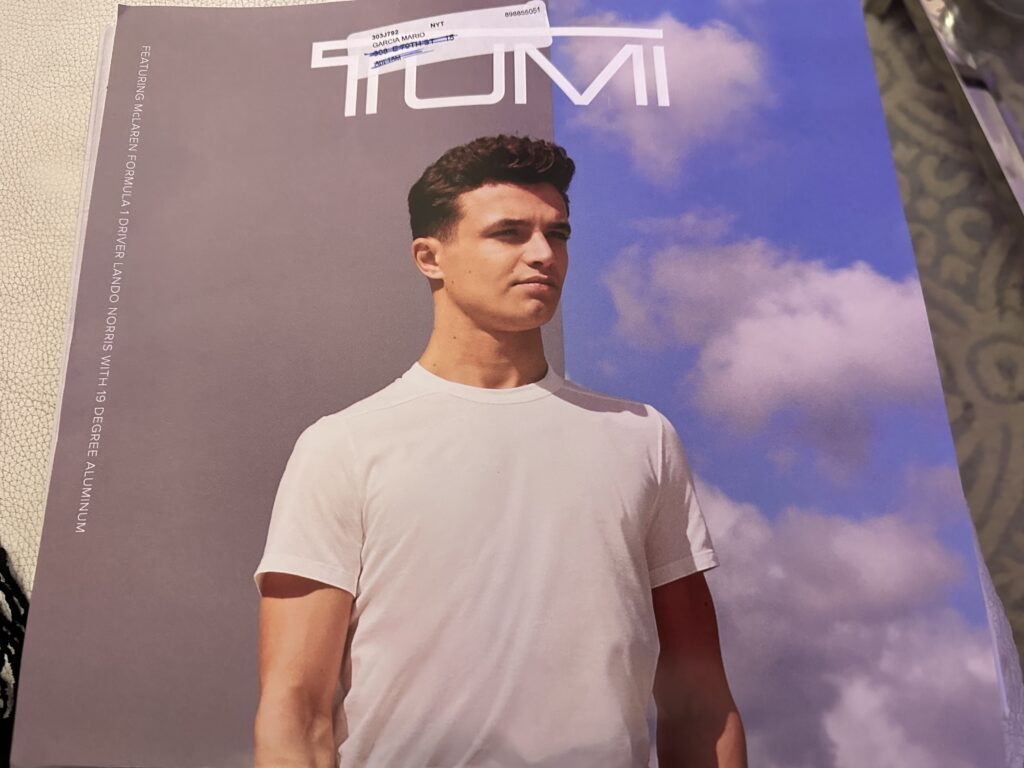
Directly under the ad is the Sunday edition of the Times:
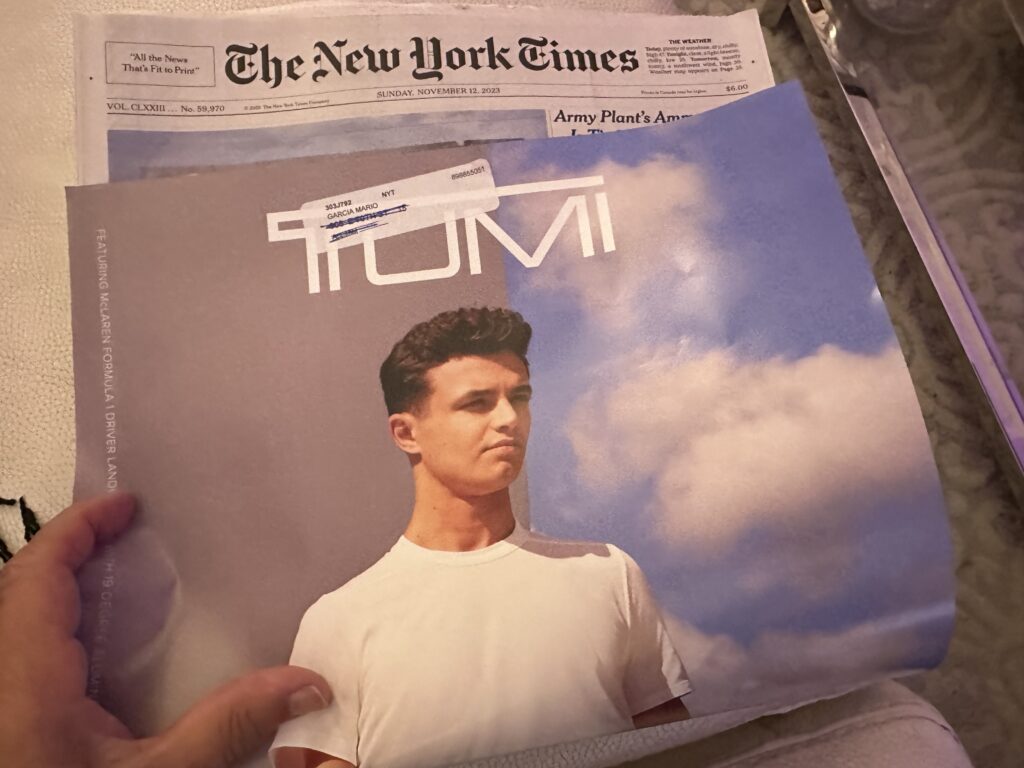

The poster-like single page offers the image of a man on one side and a woman on the other:
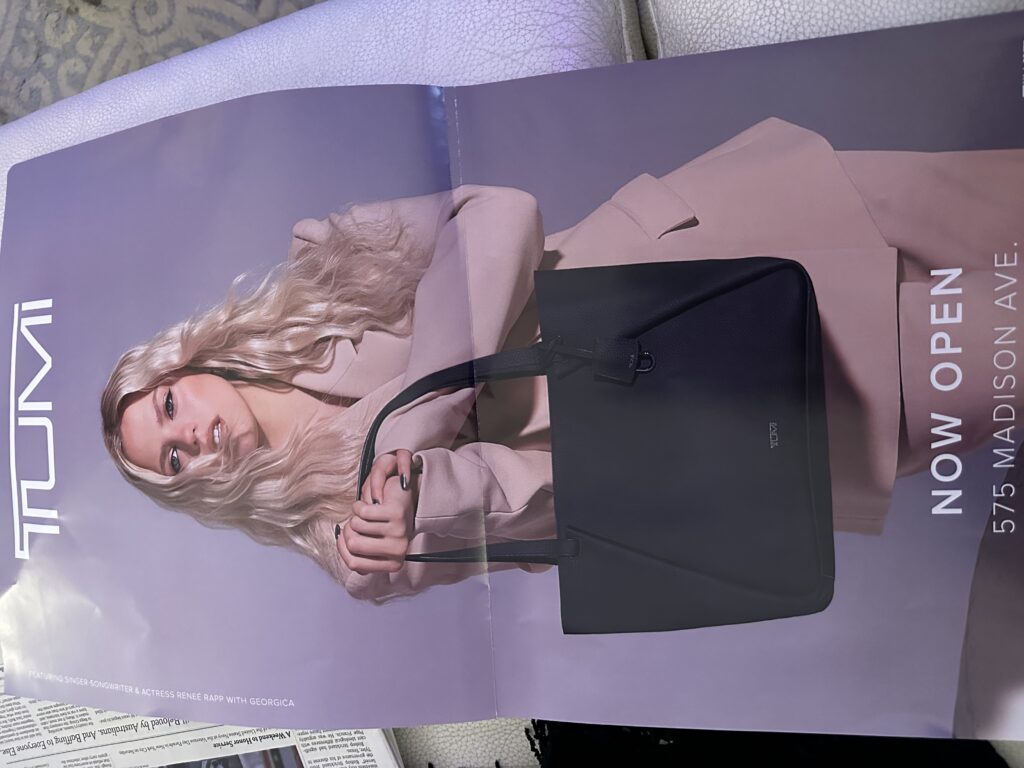
In fact, the front page of The Sunday Times also includes a “basement” banner ad for Skechers shoes, as you see here:

The power of print ads
It would be difficult to match the power of this print ad presentation on a digital platform. Of course, one can use video and motion for digital, but there is something special about the print ad that we can touch and relate to in a more intimate way.
What the numbers tell us about digital vs. print advertising

According to a study from Pew Research: Digital advertising accounted for 48% of newspaper advertising revenue in 2022, based on this analysis of publicly traded newspaper companies. This follows a steady increase from 17% in 2011, the first year it was possible to perform this analysis.
It is no surprise, however, that while print advertising is declining, digital advertising is on the increase–although only slightly. For example, when The New York Times announced its earnings for 2022, it reported the following;
“Advertising revenues were mostly flat at $179.2 million for the quarter, amid a slowdown in ad spending across the publishing industry that has led to layoff announcements at several media companies in recent weeks. The Times said digital advertising revenue came in at $111.9 million, compared with $111.1 million the previous year, while print advertising revenue increased 2.6 percent..”
A WAN-IFRA World Press Trends report for 2022 reported that:
When combined, print advertising and circulation generate more
than half (53.5%) of the total income seen by our survey
respondents but is down from last year’s report when it
was at 56.1%.
Advertising remains the leading source of reve-
nue: Across our sample, advertising revenue accounts
for nearly half (47.7%) of their income. Reader revenue,
across print and digital, is expected to bring in just over a
third (35.8%) of earnings.
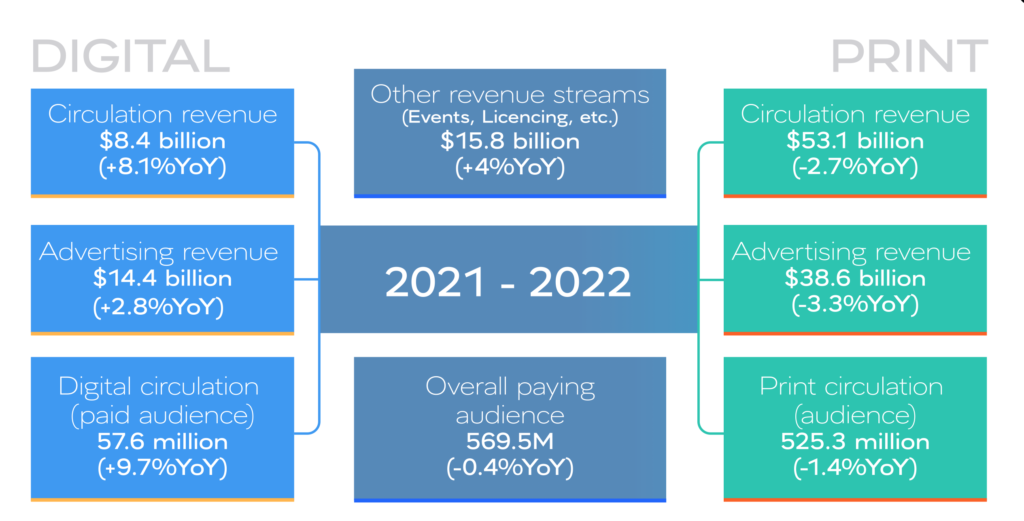
How Chat GPT sees it:
Well, the friendly ChatGPT robot sees digital advertising dominating:
Digital Dominance: A significant trend in 2023 is the dominance of digital advertising over legacy media, including newspapers. Digital formats are expected to see a 7.7% increase, while non-digital formats are projected to decrease by 5.9%. In the context of local advertising, digital is set to account for $7 of every $10 spent in 2023, up from approximately $5 in 2017.
From a global perspective:
- In 2023, global digital ad spending surpassed traditional ad spending for the first time, with digital ad spending reaching $333 billion compared to $316 billion for traditional formats. This marked a significant shift towards internet-based platforms.
- Digital vs. Traditional Split: Global digital ad spending in 2023 was estimated at $389 billion, accounting for 62% of total ad spending. In contrast, traditional ad spending stood at $234 billion, representing 38% of the total.
I admit that I only read a print edition of a newspaper on Sundays when I am home in New York City, but it is an enjoyable experience, a sort of ritual with two or three cups of coffee, the feel of newsprint at my fingertips, and the unbeatable combination of a product that is self contained with 10 sections, two glossy magazines and a book section in tabloid format.
Hope there is at least a Sunday print edition of the Times and every other newspaper for years to come. Advertisers take note of the impact that your ad can have in print! Hard to beat.
Pre-order my new AI book here
https://thaneandprose.com/…/preorder-ai-what-to-expect…
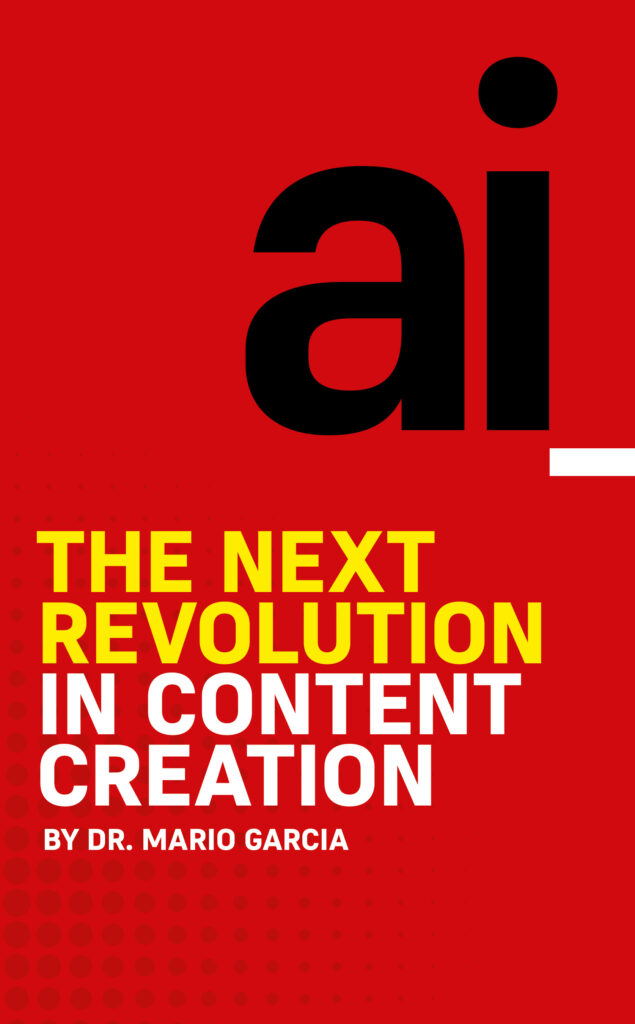
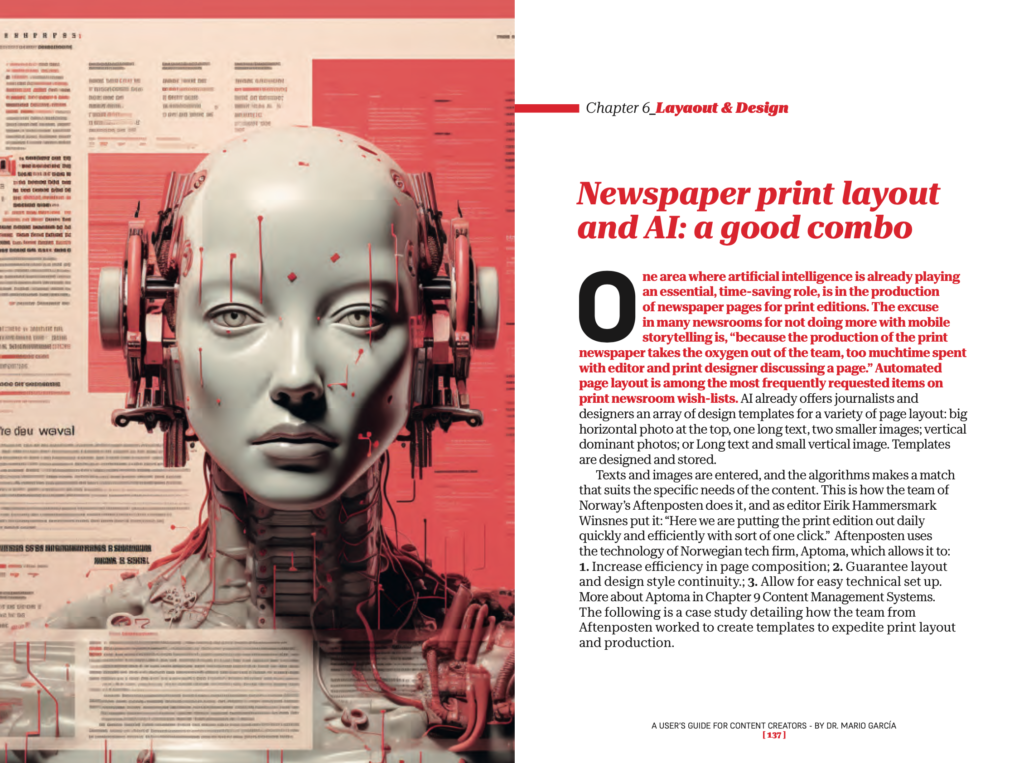
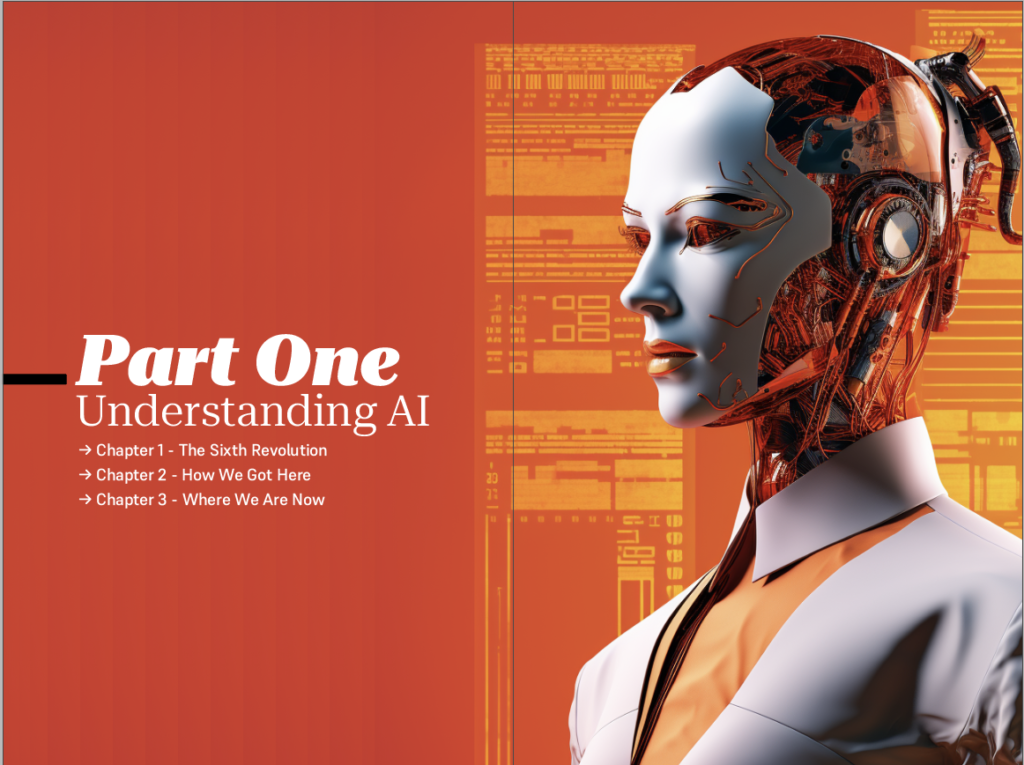
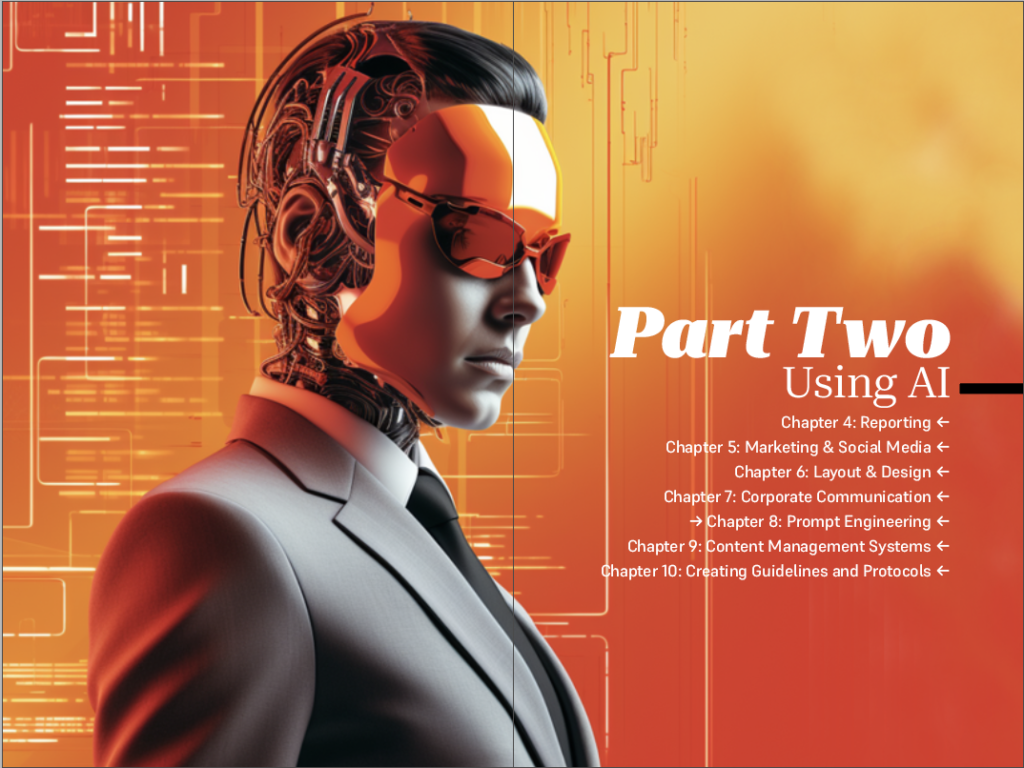
Here is a chance to pre-order my new book about Artificial Intelligence and content creation. The first 25 copies sold will be signed! Order here:
https://thaneandprose.com/…/preorder-ai-what-to-expect…
Pre-publication reviews!
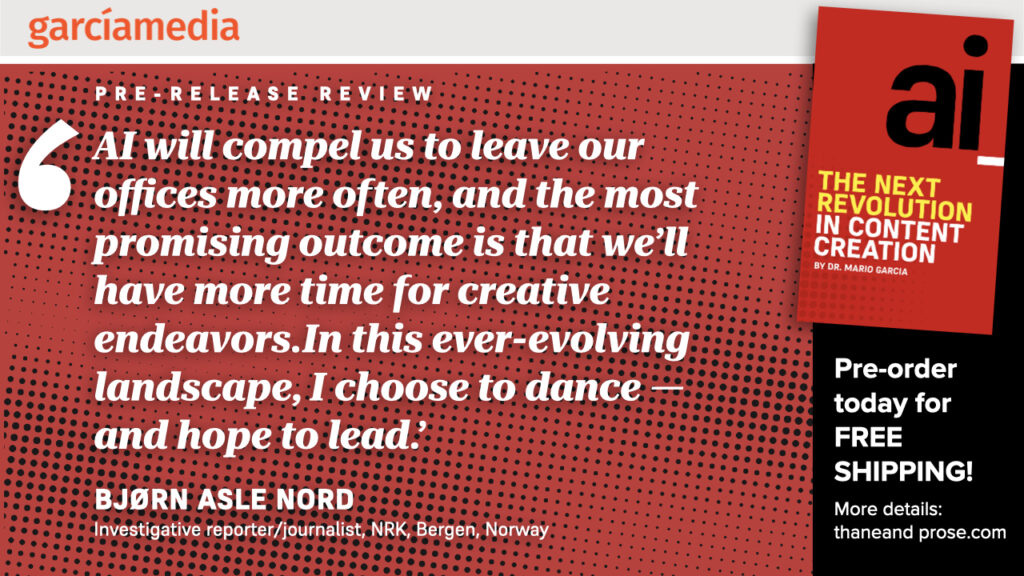
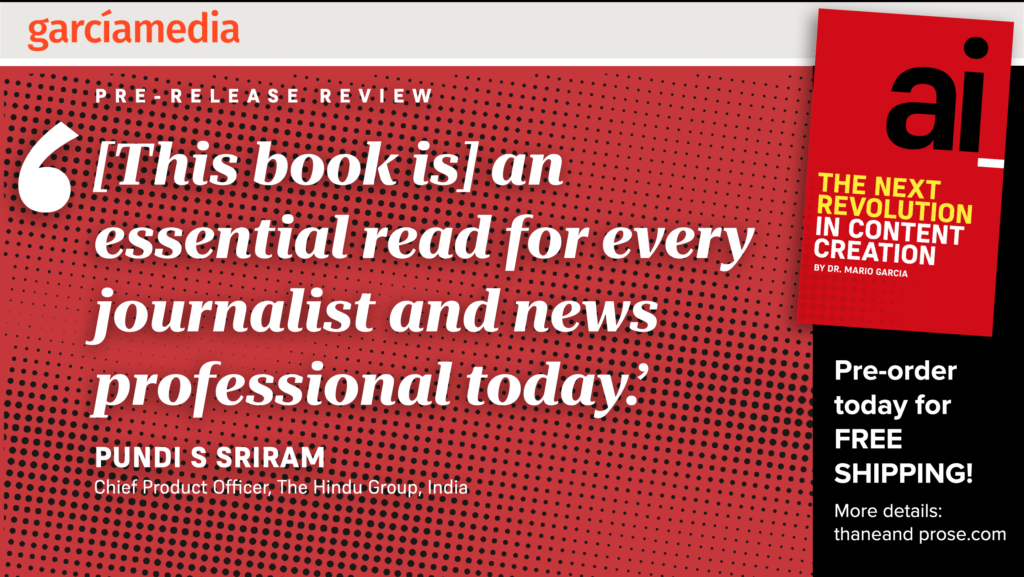
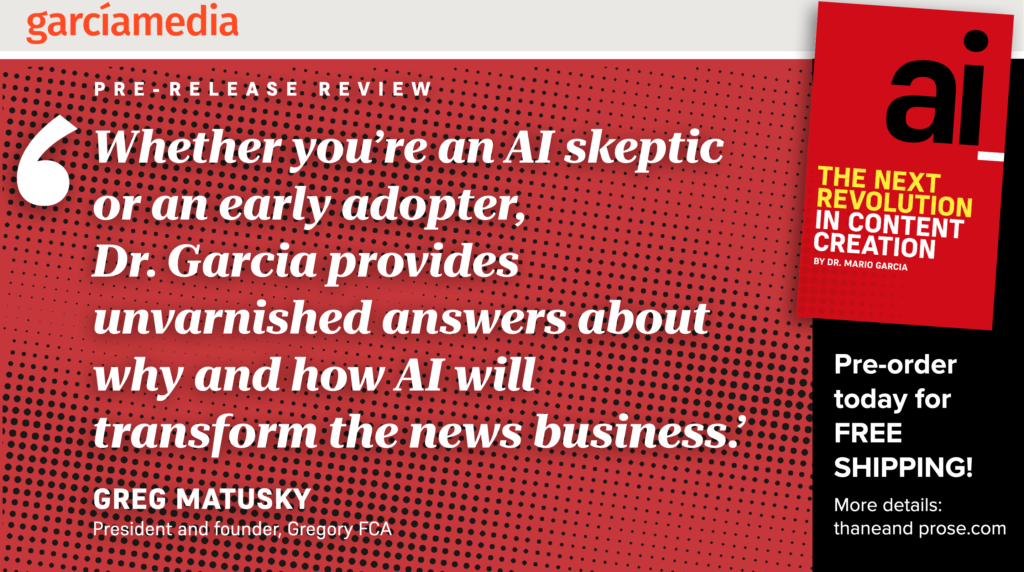
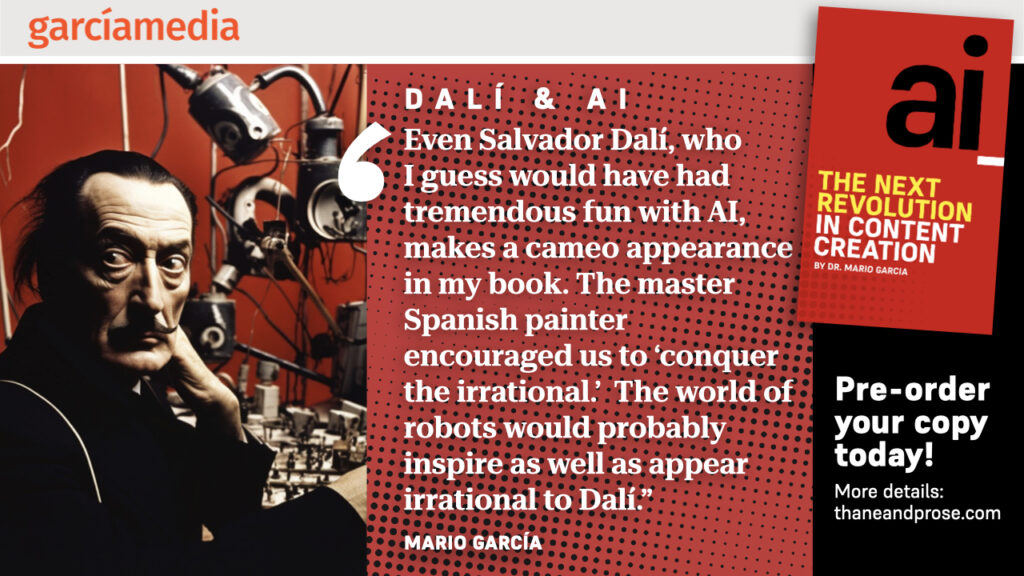
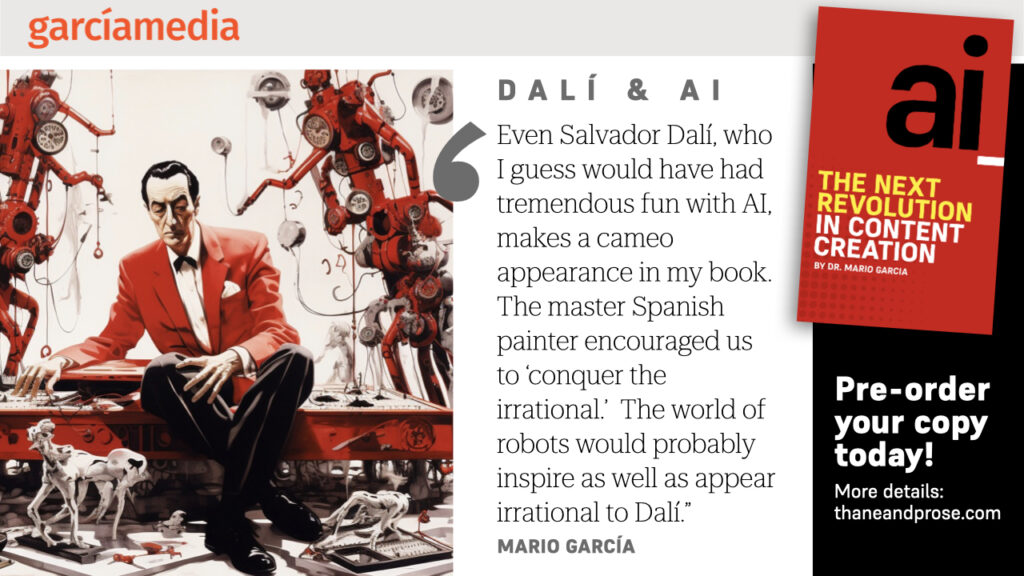
AI front and center
As I put finishing touches on the manuscript of my new book, AI: The Next Revolution for Content Creation, I am aware that the number of AI-related headlines that appear in my mailbox daily is on the increase, frustrating the author of a book that must have a date of completion, and realizing that in today’s fast paced technological advance environment, books must have websites created for updates.
For more about my new AI book, go here:
Of related interest
Newsrooms around the planet have gone mobile-first after a Garcia Media workshop!
Our Garcia Media Mobile Storytelling workshops are proven to introduce your editorial team to the way we write, edit and design for mobile platforms. It is a one-day program that involves a presentation (where I summarize my Columbia University class content), and follow it with a hands on workshop.
Did you read The Story yet?
I urge you to consult my latest book, The Story, a trilogy full of tips and explanations about mobile storytelling, which represents the latest genre for journalists to explore. See information below:
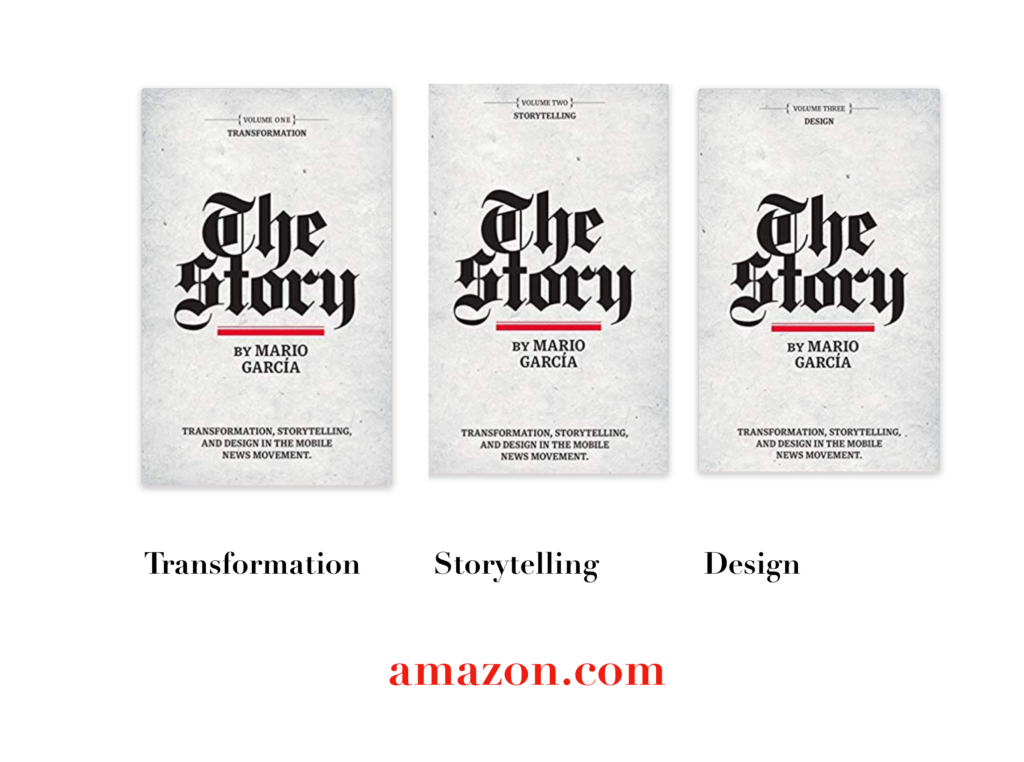
The full trilogy of The Story now available–3 books to guide you through a mobile first strategy. Whether you’re a reporter, editor, designer, publisher, corporate communicator, The Story is for you! https://amazon
Volume 1: Transformation
Volume Two: Storytelling
Volume Three: Design
Order the print edition of The Story, from Amazon, here:
The Story, en español:
TheMarioBlog post #3379